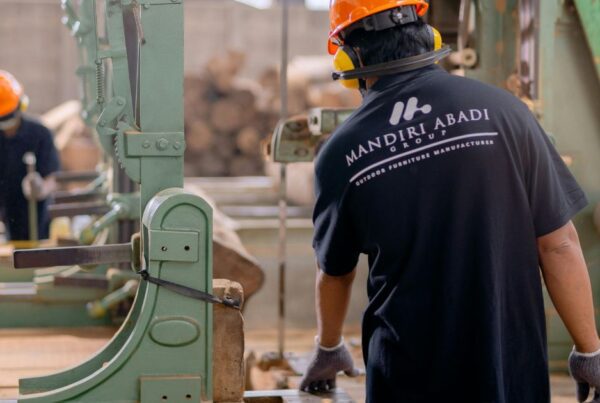 In today’s global economy, businesses of every size are crossing borders, signing international contracts, forming partnerships, and entering new markets. While these opportunities bring growth, they also create new risks when disagreements arise between companies located in different countries.
In today’s global economy, businesses of every size are crossing borders, signing international contracts, forming partnerships, and entering new markets. While these opportunities bring growth, they also create new risks when disagreements arise between companies located in different countries.
That’s where arbitration often comes in. For many international businesses, arbitration is the preferred way to resolve cross-border disputes without the expense, uncertainty, and delay of going to court in a foreign jurisdiction.
As a Florida-based firm that routinely handles international business disputes, our attorneys have seen how arbitration can be a powerful tool if it’s used correctly.
What Is Arbitration in International Trade Disputes?
Arbitration is a private, legally binding method of dispute resolution where the parties agree to submit their case to a neutral arbitrator (or panel of arbitrators) instead of litigating in court.
In cross-border transactions, this process offers a neutral ground where businesses from different countries can resolve disputes under rules they’ve agreed to in advance, often through an arbitration clause in their contract.
Unlike litigation, arbitration hearings are typically confidential, and the arbitrators are often experts in the relevant industry or area of law.
Why Businesses Choose Arbitration Over Litigation
- Neutrality: When a U.S. company does business with a partner in Europe or Latin America, neither side wants to be at a disadvantage in the other’s local court system. Arbitration lets both parties agree on a neutral forum, often in a third country, ensuring fairness from the outset.
- Enforceability Across Borders: A major reason arbitration is so effective in cross-border disputes is the New York Convention on the Recognition and Enforcement of Foreign Arbitral Awards. This treaty, signed by more than 160 countries, allows arbitration awards to be recognized and enforced internationally, something that’s much harder to achieve with foreign court judgments.
- Speed and Confidentiality: Compared to litigation, arbitration can be faster and more private. Disputes are resolved without lengthy court delays or public filings, protecting sensitive business information.
- Expertise in Complex Commercial Issues: Arbitrators are often selected for their deep experience in specific industries, finance, construction, international trade, or intellectual property, which means they understand the commercial realities behind the legal issues.
Common Types of Cross-Border Disputes Resolved Through Arbitration
International arbitration can be used to resolve a wide range of disputes, including:
- Breach of contract between companies in different countries
- Non-payment or delivery issues in import/export agreement
- Disputes between investors and foreign governments
- Licensing and intellectual property conflicts
- Construction and infrastructure project disagreements
- Joint venture or partnership breakdowns
Whether you’re a Florida exporter or an international company with U.S. operations, arbitration can provide a practical path to resolution without the uncertainty of foreign litigation.
How to Include an Arbitration Clause in a Cross-Border Contract
Many disputes become complicated simply because the original contract lacked a clear arbitration clause. A well-drafted clause should specify:
- The arbitration forum or institution (e.g., ICC, LCIA, AAA/ICDR)
- The governing law that applies to the dispute
- The language of arbitration
- The number and qualifications of arbitrators
- The location (seat) of arbitration
Without these details, even getting to arbitration can lead to procedural disputes that delay resolution.
If you’re entering into an international contract, it’s crucial to have an attorney experienced in cross-border transactions review your agreement before signing.
Florida’s Role in International Arbitration
Florida, particularly Miami, has become a leading hub for international arbitration in the Americas. The state’s proximity to Latin America, combined with its international legal community and bilingual professionals, has made it a preferred venue for cross-border dispute resolution.
The Florida International Arbitration Act and Miami International Arbitration Society have also strengthened the city’s position as a neutral and efficient location for handling these cases.
When Arbitration May Not Be the Right Choice
While arbitration has many advantages, it’s not ideal in every situation.
For example, arbitration generally offers limited appeal options and can sometimes be as costly as litigation for smaller disputes.
If you need emergency relief, like an injunction to stop a competitor from misusing confidential data, court proceedings may be more appropriate. The key is understanding when arbitration serves your business goals and when it doesn’t.
Why Legal Guidance Matters in International Arbitration
Cross-border arbitration involves navigating not only multiple legal systems but also cultural and procedural differences. Choosing the right arbitration clause, arbitrator, and governing law can significantly impact the outcome.
At Ayala Law, our attorneys represent both U.S. and international clients in business and trade disputes, helping them protect their commercial interests through arbitration and litigation when necessary. Our team brings experience in both domestic and international contract law, allowing us to approach each case strategically, whether the issue involves a supplier overseas or a multinational joint venture gone wrong.
Final Thoughts
Arbitration isn’t just a faster way to resolve cross-border trade disputes, it’s a strategic one. With the right clauses, counsel, and forum, it can offer neutrality, enforceability, and efficiency in ways traditional courts often can’t.
If your business operates across borders, it’s worth taking a closer look at how arbitration fits into your risk management strategy.
For guidance on drafting international contracts or resolving trade disputes through arbitration, contact one of our experienced attorneys in Miami at 305-570-2208.
You can also contact our founding attorney Eduardo A. Maura at eduardo@ayalalawpa.com.
Schedule a case evaluation online here.
[The opinions in this blog are not intended to be legal advice. You should consult with an attorney about the particulars of your case].
Subscribe to Our Blog
Stay informed with our latest blog posts delivered directly to your inbox. Gain valuable legal insights, tips, and advice from our seasoned attorneys.







